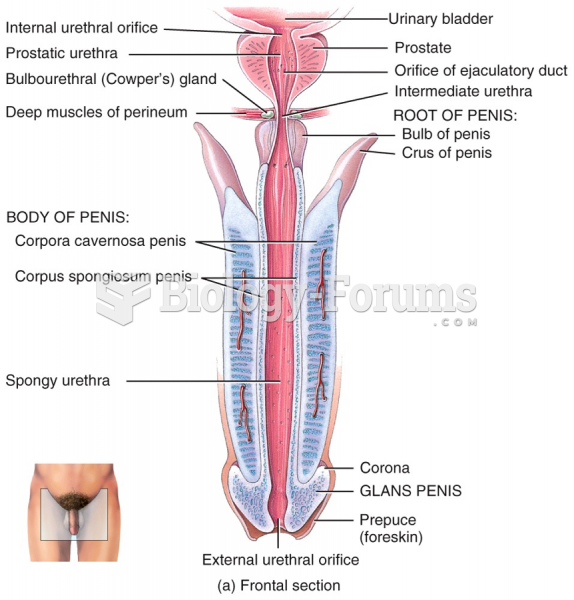|
|
|
Patients should never assume they are being given the appropriate drugs. They should make sure they know which drugs are being prescribed, and always double-check that the drugs received match the prescription.
Inotropic therapy does not have a role in the treatment of most heart failure patients. These drugs can make patients feel and function better but usually do not lengthen the predicted length of their lives.
Blastomycosis is often misdiagnosed, resulting in tragic outcomes. It is caused by a fungus living in moist soil, in wooded areas of the United States and Canada. If inhaled, the fungus can cause mild breathing problems that may worsen and cause serious illness and even death.
Medications that are definitely not safe to take when breastfeeding include radioactive drugs, antimetabolites, some cancer (chemotherapy) agents, bromocriptine, ergotamine, methotrexate, and cyclosporine.
A seasonal flu vaccine is the best way to reduce the chances you will get seasonal influenza and spread it to others.
 The female reproductive system. (a) Sagittal section through the pelvis. (b) Top view of pelvic orga
The female reproductive system. (a) Sagittal section through the pelvis. (b) Top view of pelvic orga
 The primary ignition system is used to trigger and therefore create the secondary (high-voltage) ...
The primary ignition system is used to trigger and therefore create the secondary (high-voltage) ...





